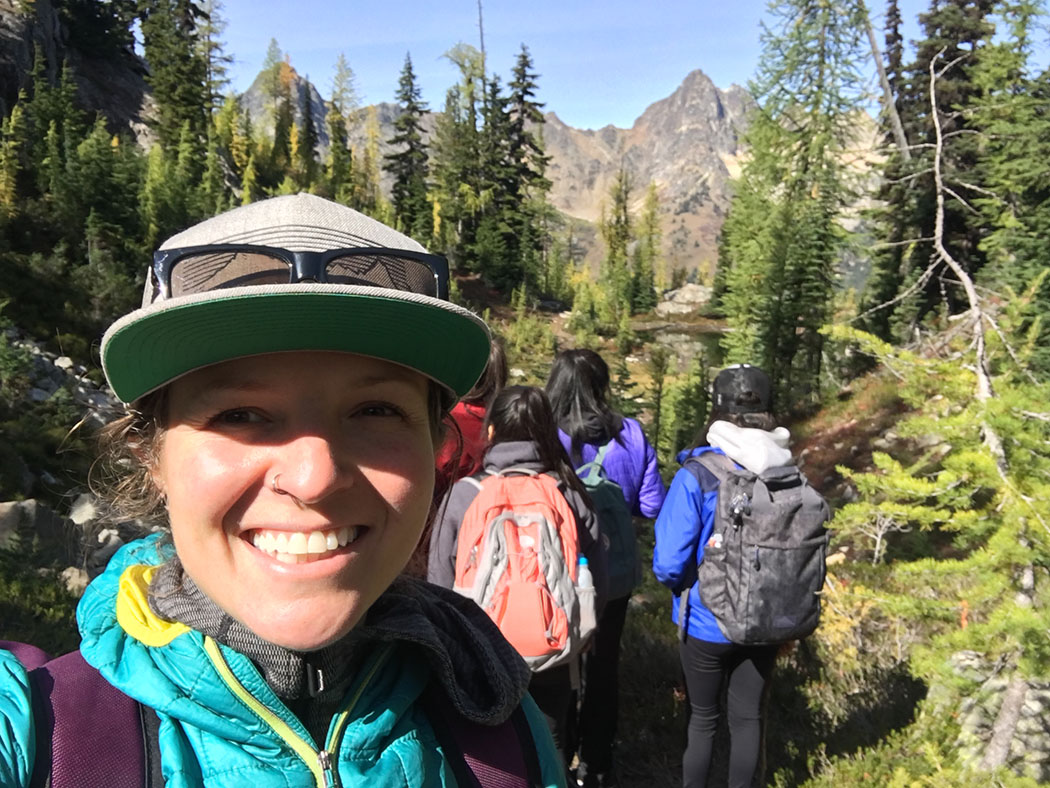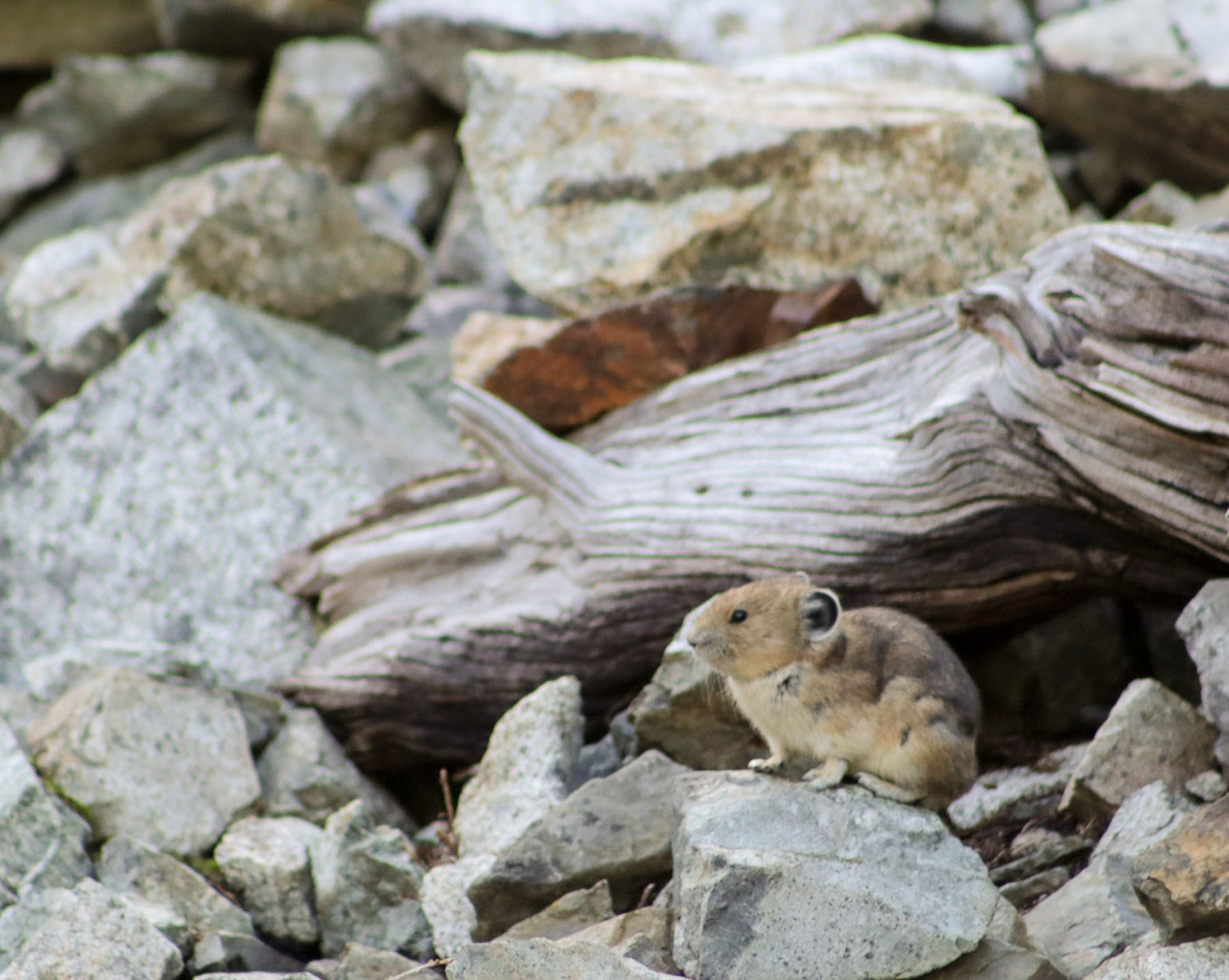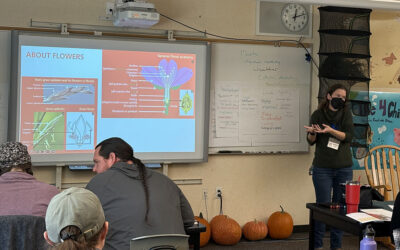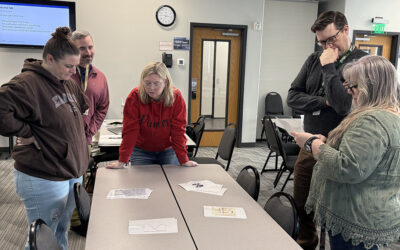This fall students at Cascade High School in Leavenworth have been studying what the large scale disappearance of American Pikas from regions experiencing warmer summers and decreased winter snowpack can tell us about energy and matter in the environment and the interactions between systems. Students focused on answering questions like why are the pikas in those regions so stressed out? What are the implications of the demise in certain areas and what is the fate of this important herbivore in the Cascade Mountains of Washington State? Are they stressed out too?
Molly Ravits is a high school science teacher at Cascade High School and the developer of the Stressed Out Pikas phenomena unit. At the end of September she was able to take 34 of her students on a field trip to Blue Lake located just outside the boundary of the North Cascades National Park. Students were there to observe pika, the glacial history of the area, and to discuss climate science and its negative impacts on biodiversity. All but two students saw pika during the hike making the unit even more meaningful as these students observed pika in their natural habitat and interacting with their environment.

Molly Ravits, Cascade High School science teacher, with student hiking into Blue Lake in the North Cascades National Park. Photo Credit: Molly Ravits
Ravits said of the trip “There is something so awesome and inspiring about spending time outside with youth.” She reported that many of her students had never been to Blue Lake or even knew it existed. Ravits also shared that students are still talking about their experience on the trip and out performing previous student groups that have experienced the curriculum without a field trip.




